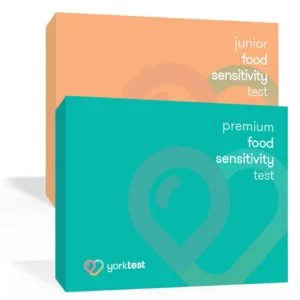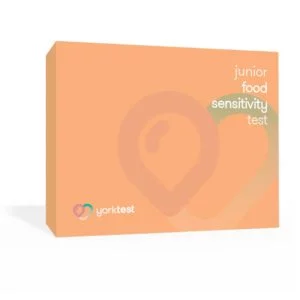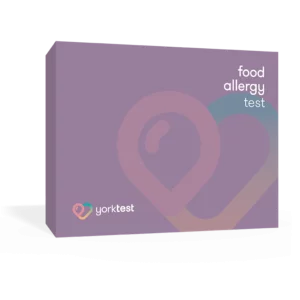Wine allergy can affect anyone
A recent poll of US wine drinkers by Wine Intelligence suggests that 49% of US adults are regular wine drinkers. This equates to roughly 126.6 million Americans… and many glasses of wine! Whilst we are all familiar with the more common side effects of drinking wine (or more specifically, the less sought-after side effects of drinking too much wine, such as sickness and dizziness) what is less well-known is that wine can cause an allergic reaction.Â
While being allergic to wine is admittedly quite rare, suffering from a wine allergy can be unpleasant, to say the least. There is also the fact that you may suffer from a wine intolerance instead of an allergy, which has its own set of challenges. You may find yourself with headaches, stomach problems, or sneezing after drinking wine. If so, you could be exhibiting signs of an allergy. If you think you may have a wine allergy, read on to learn more about the condition.
What is a wine allergy?
A wine allergy is an IgE reaction, which means that any related symptoms can appear almost immediately. This is different from a wine intolerance, which is an IgG reaction where symptoms may take several days to appear.
A wine allergy can be caused by either red or white wine. There is no difference in the possible symptoms between a red wine allergy and a white wine allergy.
What Is In Wine That Causes Allergies?
Several potential allergens can be found in wine. Some of these include:Â
Â
- Grapes – more specifically, certain proteins found in grapes.
- Yeast – the yeast ferments the sugars from the grapes into ethanol. Unsurprisingly, yeast has the potential to cause allergic reactions.
- Ethanol – Ethanol is a specific type of alcohol that is in wine, and this type of alcohol can cause a reaction.
- Sulfites – Sulfites are preservatives commonly added to wine to prevent oxidation and maintain freshness. Some people are sensitive or allergic to sulfites.
- Fining Agents – certain fining agents that are added during wine production can contain proteins derived from milk, eggs, and fish. All of these have the ability to cause an allergic reaction.Â
Is Wine An AntiHistamine?Â
Wine is not an antihistamine. In fact, it is quite the opposite; wine can trigger the release of histamines in the body. Wine can contain histamines itself, which can trigger an allergic reaction and can cause your body to release histamines. Perhaps this is where some of the confusion comes from regarding wine’s histamine properties.Â
How common is wine allergy?
Despite the fact that there are many different ingredients and chemicals in wine that we can react to, wine allergies are quite rare. A true allergy to the alcohol in the wine itself is extremely rare, although a few cases of skin rash reactions have been recorded. More commonly, symptoms are caused by an intolerance or long-term immune reaction to the food ingredients in the wine, such as yeast or the specific grape varieties, or reactions to chemicals in wine, such as the previously mentioned histamines or sulfites.
What are the symptoms of wine allergy?
Wine allergy symptoms, like any allergy, can be severe. These symptoms will present almost immediately. Common examples of wine allergy symptoms include:
– Rashes
– Diarrhea
– Vomiting
– Shortness of breath
– Stomach cramps
– Swelling in the mouth
The University of Mainz in Germany also found that 24% of people reported allergy and intolerance-like symptoms after drinking wine. Interestingly red wine seemed to produce more symptoms than white wine. However, the study didn’t take into account many of the longer-term symptoms of intolerances such as frequent headaches, eczema, chronic fatigue, low mood, and IBS. If these were added up as well, we would expect to see a much higher percentage of sufferers.
What is wine intolerance?
Wine intolerance, or wine sensitivity, is an IgG reaction, meaning that symptoms present far more slowly than those of a wine allergy. Furthermore, the wine intolerance symptoms are typically less severe and may include IBS, bloating, or diarrhea. Whilst wine intolerance symptoms are not life-threatening, they can cause discomfort.
Intolerances often start with mild gut damage, such as that which is caused by a gastro-intestinal infection, or taking antibiotics (which kill off all the good bacteria). Alcohol also increases the permeability of the gut, which allows larger food molecules into the body that can trigger an immune reaction. This may explain the reactions of mildly food-sensitive individuals, who may not react to the wine ingredients alone but will do so when they are combined with alcohol. Most of us put symptoms after drinking down to a hangover, but this doesn’t always reflect a true picture; intolerance to ingredients in drinks such as wine can cause similar, but often longer-term symptoms.
Is there a wine intolerance test?
YorkTest’s Premium Food Sensitivity Test is a comprehensive intolerance (also known as sensitivity) test that measures IgG reactions to 200 food and drink ingredients – including many common wine grapes. Our test covers many grapes which typically cause wine intolerance, including the following:
– Cabernet Sauvignon
– Chardonnay
– Chenin Blanc
– Concord
– Malbec
– Merlot
– Pinot Noir
– Red Zinfandel Mix
– Riesling
– Sauvignon Blanc
– Syrah/Shiraz
– White Zinfandel
What is a tannin allergy?
Wine contains tannins, which are a chemical compound called polyphenols, found naturally occurring in grapes. Tannins can cause allergic reactions, although these are not common. A tannin allergy may also be caused by foods or drinks other than wine, as they also occur in common foods such as strawberries, chocolate, and legumes. Tannin allergy symptoms are consistent with wider symptoms of wine allergy. If you suspect that you may have an allergy, you can make an appointment to consult with an allergist. You can also try a home-to-laboratory allergy test kit to help determine whether or not you have an IgE reaction.
If you suffer an allergic reaction to wine you should seek medical assistance immediately.











